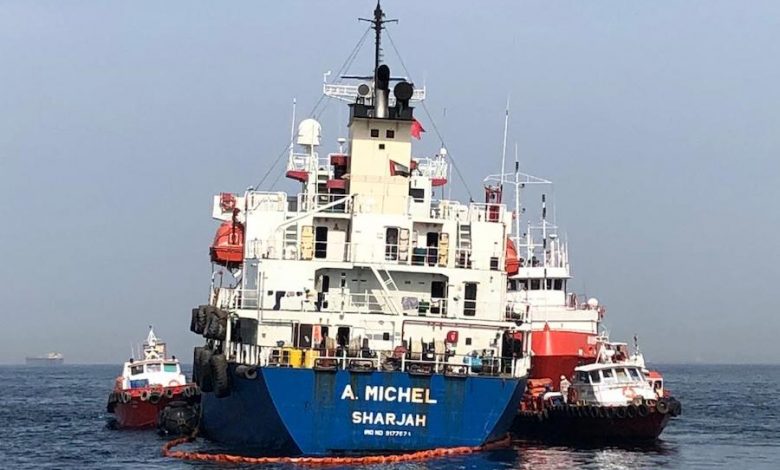Extra security measures in place for ships heading through the Strait of Hormuz

Shipowners and shipmanagers are taking extra security measures when transiting the Strait of Hormuz and around the key bunkering hub of Fujairah in the wake of attacks on four tankers in the area on Sunday.
Reuters is reporting that Japanese shipping major Nippon Yusen Kaisha (NYK), one of the world’s largest shipping lines, has decided to stop sending tankers for refuelling, maintenance or crew swaps in Fujairah. Security consultants told Splash today that NYK is not alone in avoiding Fujairah, with a host of other big owners following suit.
A spokesman for Singapore manager Thome told Splash today: “In common with all merchant shipping in the Fujairah and UAE region, Thome as a responsible manager has advised all its vessels to exercise greater caution and vigilance at this time while transiting the vicinity and we have raised the security level of our vessels trading in the area.” Thome is the manager of one of the four tankers that was hit on Sunday.
Bjorn Hojgaard, CEO of one of the world’s largest shipmanagers, Anglo-Eastern, told Splash today his crew have been given extra security guidelines when heading to the area where the attacks happened. He declined to elaborate what these additional security measures involve.
Kishore Rajvanshy, the head of another Hong Kong shipmanager, Fleet Management, said some of the measures his ships heading to the region had been instructed to follow included keeping the main engine on very short notice, alert watch keeping on bridge with close radar and VHF watch, placing additional lighting around the vessel and to deploy a continuous deck patrol/lookout by a roving team.
Rajesh Unni, CEO of shipmanager Synergy Marine Group, also pointed out that vessels are also receiving plenty of guidance from local port authorities in the region this week.
The Joint War Committee (JWC), which comprises underwriting representatives from both the Lloyd’s and International Underwriting Association company markets, is set to hold an extraordinary meeting today in London to discuss the deteriorating security situation in the Gulf on the back of the four tankers suffering attacks on Sunday and a Saudi pipeline reportedly hit by armed drones on Tuesday. The ships suffered ruptures to the stern of their hulls in what appears to be a coordinated attack on Sunday morning in waters off Fujairah.
In the wake of the tanker attacks, the Norwegian Maritime Authority took the decision to warn owners to up their security levels to MarSec 2 around Fujairah waters, which corresponds to an elevated threat warning around the port.
“We are very concerned,” Kuba Szymanski, secretary general of the shipmanagement association, Intermanager, told Splash today.
The UAE, Saudi Arabia, and Norway yesterday sent a joint letter to the United Nations Security Council, drawing attention to the tanker incident.
“It is an act of sabotage that affects the safety of international navigation and the security of world oil supplies,” said Abdallah Al-Mouallimi, permanent representative of Saudi Arabia to the UN. Two of the ships hit were Saudi-flagged, one was from the UAE and the fourth vessel was Norwegian-flagged.
The UAE, Saudi Arabia, and Norway also intend to formally notify the International Maritime Organization of these attacks and the threat they pose to international shipping.
This week ITF seafarers’ unions from around the world are meeting in Genoa, Italy, to discuss the issues facing seafarers globally.
“Seafarers’ unions from around the world today expressed concern at the situation in Fujairah and the escalating friction in the region,” said Dave Heindel, chair of the International Transport Workers’ Federation (ITF) Seafarers’ Section, adding: “Clearly our priority is the seafarers aboard these vessels, seafaring is challenging and dangerous enough on any given day without adding the threat of terrorism into the picture. Any risk to seafarers’ safety is of grave concern. Seafarers’ unions from across the world today urged all governments to do everything possible to de-escalate the situation and assure safe navigation and the security of maritime traffic in the region.”
السفينة "أمجاد" من السفن الأربعة التي تضررت في الفجيرة أثناء إستهدافها.
شاهد أضرارها من تحت الماء .#جنودنا_يقصفون_مليشيا_ايران pic.twitter.com/4QaRrlQESP
— هاني الصفيان (@H_alsufayan) May 16, 2019
